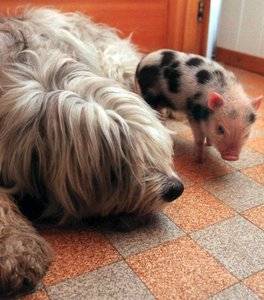- Joined
- Apr 30, 2005
- Messages
- 34,588
haha! I should show you the amount of bacon in my freezer. Organic and uncured of course!
Uncured?
Who'd want to eat sick bacon?
haha! I should show you the amount of bacon in my freezer. Organic and uncured of course!
haha! I should show you the amount of bacon in my freezer. Organic and uncured of course!
That pigs suffer in our food system is certain – as is the fact that they think and feel emotions. It’s up to us now to think of that as enough. It’s up to us to think and feel differently about pigs.
For instance, each year in the US roughly 110m pigs are killed for meat. Where is the same public outcry over bacon?
The simple answer is emotional prejudice. We just don’t care enough about pigs for their needless suffering to pull at our heartstrings. As Melanie Joy, social psychologist and expert on “carnism” points out, we love dogs, yet we eat pigs, and there are simply no good moral reasons for such hypocrisy.
Dogs and pigs are quite similar in all the features that seem to count morally to most people. They have similar social intelligence with rich emotional lives, both can use human-given cues to locate objects, both might be able to use a mirror to locate objects (though research suggests pigs might have an advantage here) and, of course, both animals have a deep capacity to suffer and a desire to avoid pain.
As a psychologist who studies the way people think morally, I am sobered (and saddened) by the cold truth that people are often blind to the inconsistencies in their thinking, particularly when animals are involved.
Our moral psychologies are good at finding fault, but not when the spotlight is turned toward our own practices and preferences.
are known to be one of the most intelligent domesticated animal species in the world.
